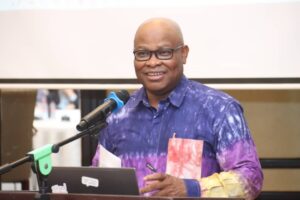By Rashidatu IBRAHIM
An economist and advisor on South-South Cooperation and Development Finance at the South Centre, a Geneva-based intergovernmental organisation, Yuefen Li, has urged African countries to enforce regulations that require multinational corporations to contribute a greater share of taxes for their operations within these nations.
She noted that implementing such measures would serve as an effective governance mechanism for African countries to generate revenue and manage their debts independently, reducing reliance on tools provided by the IMF and World Bank.
According to her, multinational corporations are generating substantial revenue from African countries; however, in many cases, these companies manage to evade paying taxes.
“For multinationals operating in African countries, there are two crucial demands that should be made. Firstly, they should be required to pay taxes, as many of these corporations manage to avoid fulfilling this obligation despite profiting significantly from the continent, particularly in sectors such as extractive industries and cocoa production. This tax revenue is vital for African countries to effectively service and manage their debts,” she added.
Ms. Li made these remarks at the international conference on ‘African Debt Crisis and the Reform of the International Financial Architecture’, organised by the International Development Economics Associates (IDEAS) in Accra.
The event, attended by experts, policy-makers, and members of civil society, served as a platform to discuss the legacy of the G77 New International Economic Order agenda (NIEO) on its 50th anniversary. Additionally, experts explored current proposals aimed at reshaping the international financial architecture.
Ms. Li reiterated the link between taxing multinationals and the inability of African governments to enforce fiscal policies essential for the development of their countries.
“The failure to collect taxes actually reduces the government’s revenue and also it would affect the actual work in the government, the implementation of fiscal policies and other policies. So I think it is very important and very much related to debt issues,” she emphasised, calling on African countries to cooperate and establish taxation regimes to improve the collection of taxes.
“I think we need international cooperation on taxation issues because multinational corporations face challenges such as transfer pricing and tax evasion. It’s imperative for developing countries to collaborate, exchange experiences on tax collection and formulate essential regulations to ensure effective tax collection,” Ms. Li added.
“There’s always this ongoing struggle where multinational corporations aim to maximise their gains from the country, employing various strategies. In response, African countries must unite, develop their own strategies and utilizs legal mechanisms to enforce their desired strategies,” she further stated.
Similarly, speaking on the theme ‘The African debt crisis – past, present, and future prospects’, Prof. Adebayo Olukoshi advised African countries to exercise caution and clarity in their negotiations for loans with other nations.

Citing examples, he stated: “China is the second-largest economy globally, with aspirations to become the first. Moreover, it actively promotes its businesses to explore markets and secure resources for its development. It’s essential to understand that China’s engagement with Africa is not purely altruistic. Therefore, African countries must discern what they seek from China. Likewise, when engaging with China or any other nation, African countries must be clear about their national interests and repayment plans if seeking loans”.
Regarding the political aspect of debt sustainability, Prof. Olukoshi urged African leaders to implement measures aimed at dismantling the structures of excessive reliance on foreign aid. He emphasised the importance of prioritising value addition to raw materials exported from the continent.
“We cannot perpetually resort to seeking assistance generation after generation when we are, in fact, the most resource-endowed continent. It’s imperative to awaken to this reality, to understand that enough is enough. Only then can we initiate the requisite measures to dismantle the structures of our dependency.
“First of all, why do you produce raw materials which you don’t process? why do you export more capital from Africa to the rest of the world and then go begging to borrow peanuts which will then be used to oppress you even more?” he quizzed.










